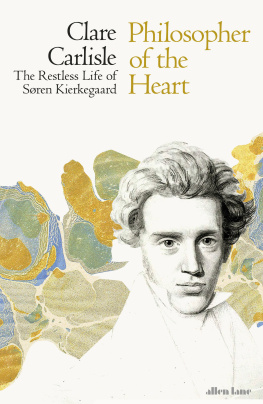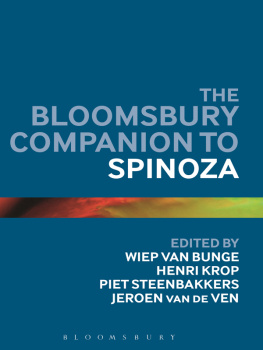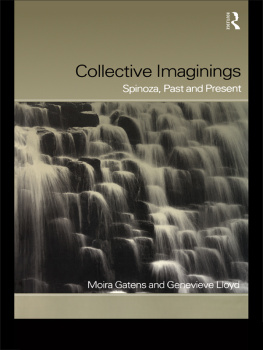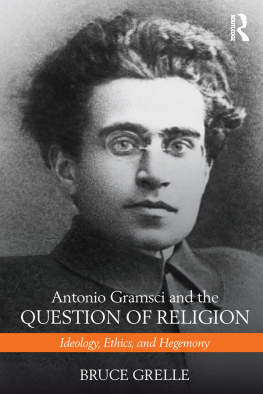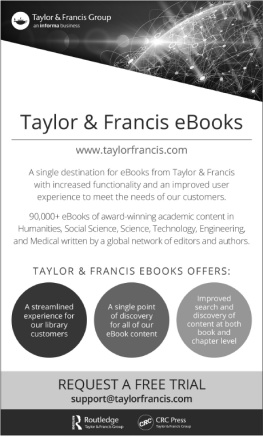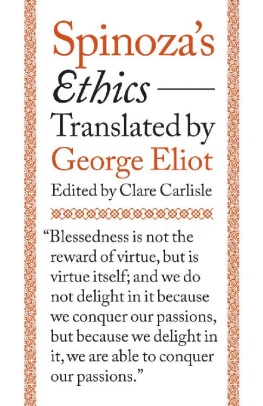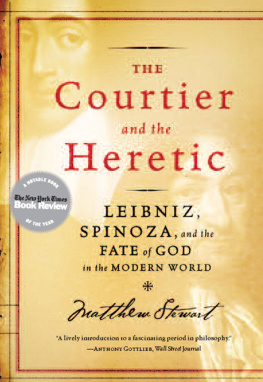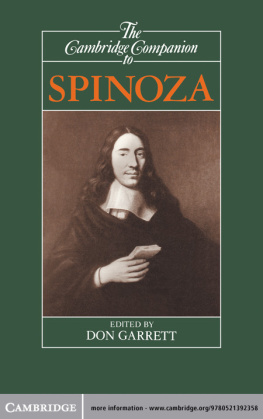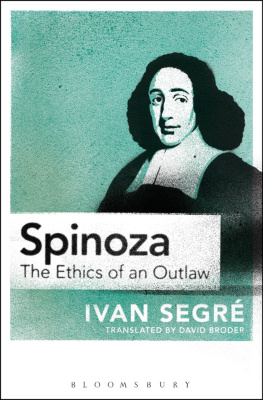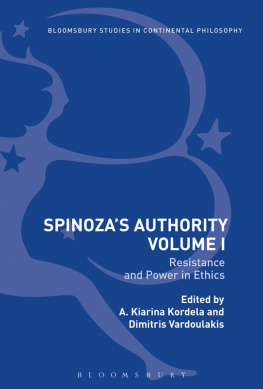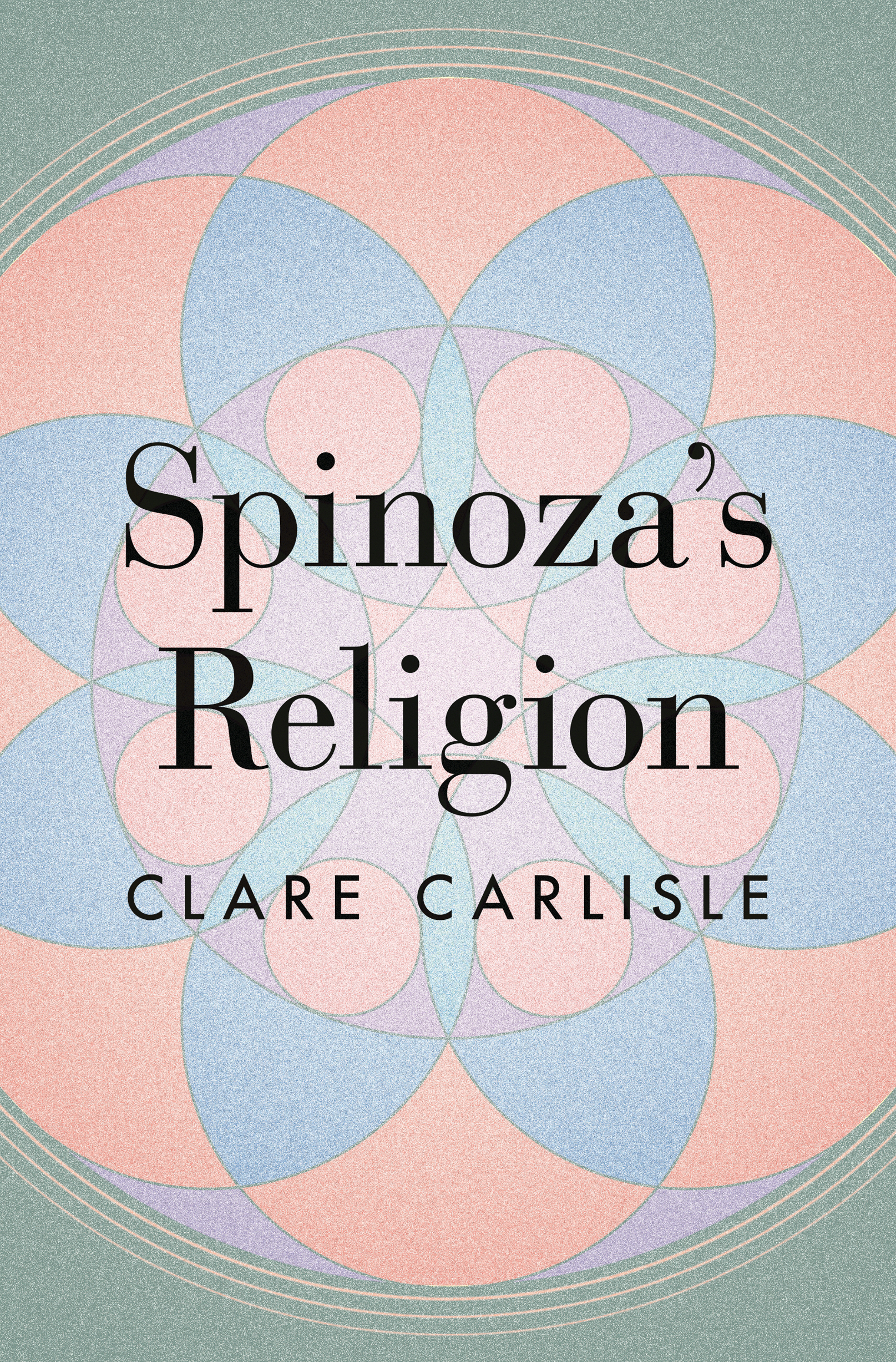SPINOZAS RELIGION
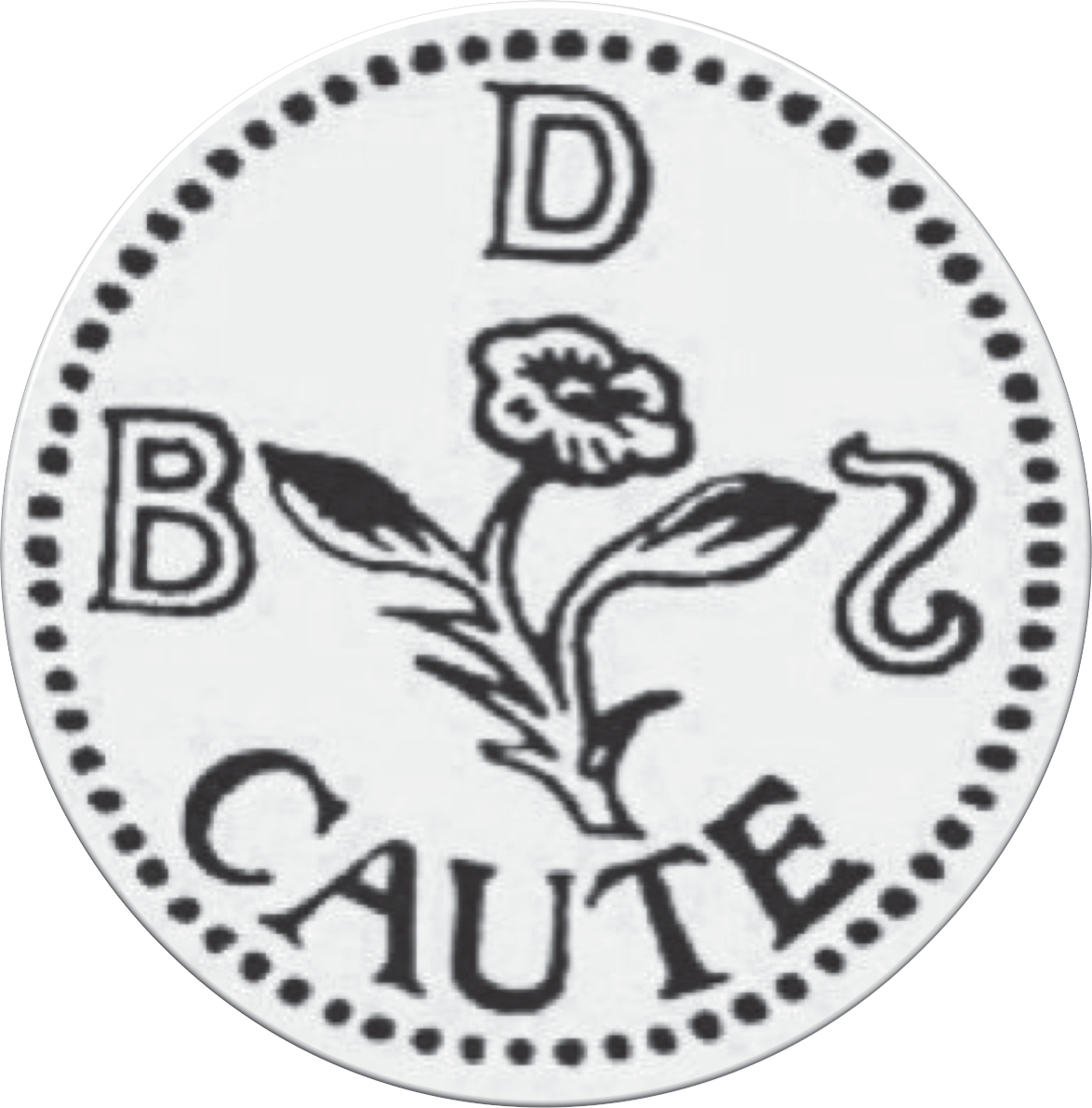
Spinozas Religion
A NEW READING OF THE ETHICS

Clare Carlisle
PRINCETON UNIVERSITY PRESS
PRINCETON & OXFORD
Copyright 2021 by Princeton University Press
Princeton University Press is committed to the protection of copyright and the intellectual property our authors entrust to us. Copyright promotes the progress and integrity of knowledge. Thank you for supporting free speech and the global exchange of ideas by purchasing an authorized edition of this book. If you wish to reproduce or distribute any part of it in any form, please obtain permission.
Requests for permission to reproduce material from this work should be sent to permissions@press.princeton.edu
Published by Princeton University Press
41 William Street, Princeton, New Jersey 08540
6 Oxford Street, Woodstock, Oxfordshire OX20 1TR
press.princeton.edu
All Rights Reserved
Library of Congress Control Number 2021939527
ISBN 978-0-691-17659-8
ISBN (ebook) 978-0-691-22420-6
Version 1.0
British Library Cataloging-in-Publication Data is available
Editorial: Ben Tate and Josh Drake
Production Editorial: Debbie Tegarden
Jacket Design: Karl Spurzem
Production: Danielle Amatucci
Publicity: Alyssa Sanford and Amy Stewart
Copyeditor: Francis Eaves
To my family: Johnny, Joseph, Katy
inquietum est cor nostrum, donec requiescat in te
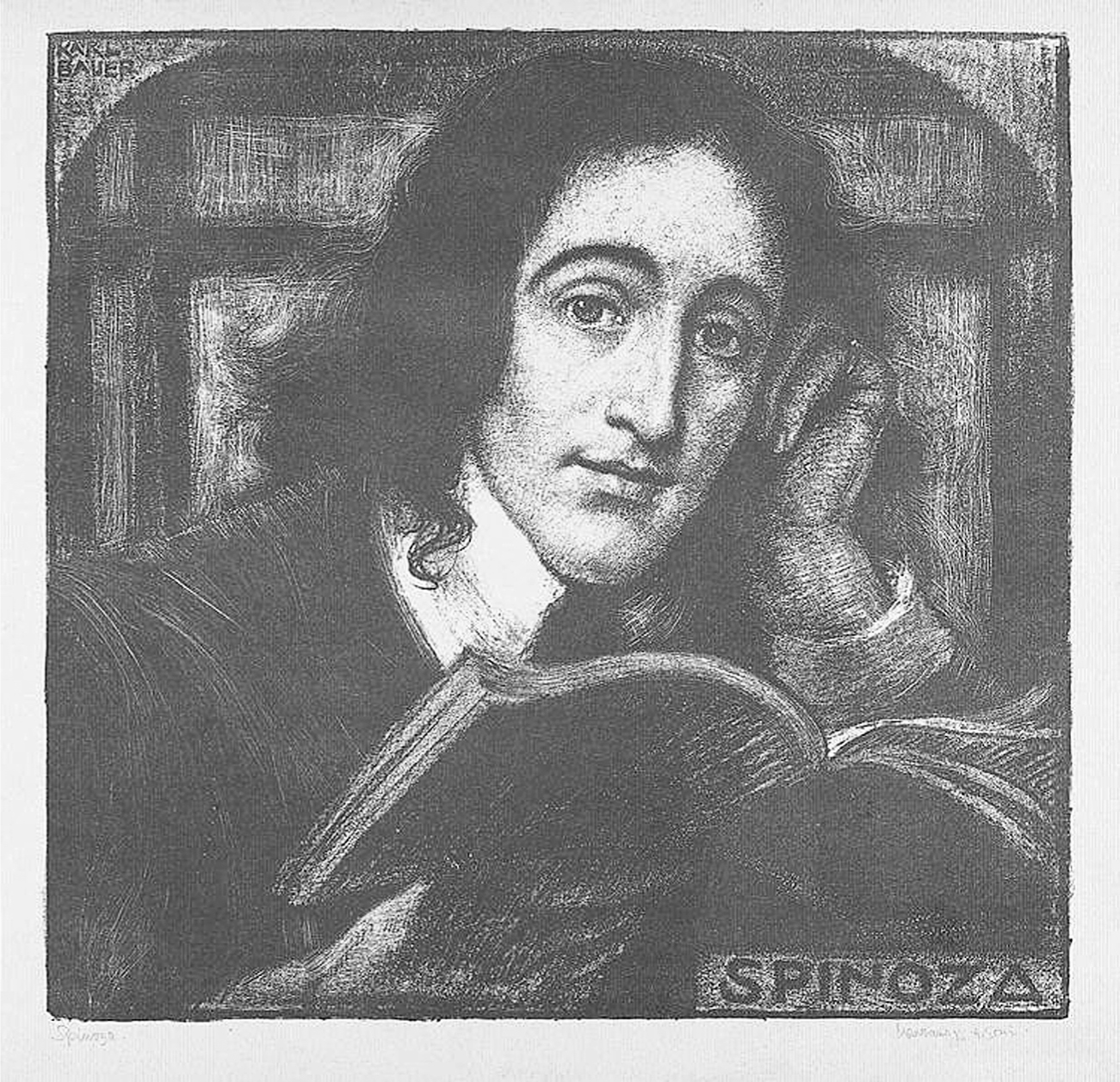
CONTENTS
SPINOZAS RELIGION
INTRODUCTION
The Question of Religion
BENEDICT DE SPINOZA did not have a religionat least not in the usual sense of the word. He was brought up and educated within Amsterdams Jewish community, from which he was cast out in 1656, at the age of twenty-three. As far as we know, he made no effort to reconcile with this community: leaving it was, it seems, a welcome intellectual liberation. In the seventeenth century Spinoza was unusual, perhaps even unique, in engaging closely and deeply with theological questions as a free thinker, deliberately occupying a perspective outside any religious tradition. His masterpiece the Ethics (1677) shines out even amongst the philosophical works of his most original contemporariesDescartes and Leibniz, for exampleas a metaphysical and ethical vision unconstrained by the demands of doctrinal orthodoxy.
About a year before his death, while he was completing the Ethics, Spinoza wrote a letter to Albert Burgh, a young man who had just converted from Calvinism to Catholicism. Here Spinoza discussed Judaism, Christianity and Islam, and made plain his rejection of dogmatic, sectarian religion. He explained that he knew the truth of his own philosophy in the same way you know that the three angles of a triangle are equal to two right angles for the true is the indicator both of itself and of the false. He asked Burgh, who naturally thought his religion superior to any other,
How do you know that [your teachers] are the best among those who have ever taught other Religions, still teach them, or will teach them in the future? Have you examined all those religions, both ancient and modern, which are taught here, and in India, and everywhere throughout the globe? And even if you had examined them properly, how do you know you have chosen the best?
These are good questions, and they are only partly rhetorical. Mocking the pride and competitiveness that often characterise religious sectarianism, Spinoza granted that the organization of the Roman Church is well-designed politically, and profitable for many. I do not believe there is any order more suitable for deceiving ordinary people and controlling mens minds, unless it would be the order of the Mahommedan Church. Yet his irreverence towards sectarian claims to spiritual pre-eminence also went in more tolerant, more conciliatory directions. In every Church there are many very honourable men, who worship God with justice and loving kindness, he reminded Burgh, for we know many men of this kind among the Lutherans, the Reformed, the Mennonites, and the Enthusiasts. So you ought to concede that holiness of life is not peculiar to the Roman Church, but is common to all. Spinoza closed his letter by counselling the eager young convert to recognize the reason God has given you, and cultivate it.
Given Spinozas resistance to what commonly passes for religion, the title of this book contains an irony, and perhaps for some a provocation. At the same time, it is entirely in earnest. The book offers a new interpretation of Spinozas Ethics which takes seriously the question of its religious and theological import. At the same timeas I argue in detail in my final chapterit suggests that understanding Spinozas religion forces us to rethink the concept of religion itself. And this is no coincidence, since our modern category of religion, structured by notions of belief and belonging, ideology and identity, rose to prominence during Spinozas century. Thanks in part to Jonathan Israels pioneering history of the Radical Enlightenment, Spinoza is now recognised as an architect of modernitybut was his vision of human beings and their place in the cosmos radically secular, or radically religious? And does this very distinction between religious and secular rest on a distinctively modern concept of religion, which Spinoza challenged in its infancy? How might the Ethics lead us to rethink our assumptions about what religion is, and what it means to be religious?
Raising these questions leads to a new appreciation of Spinozas significance. He is rightly seen as a decisively modern thinker: like other forward-looking philosophers of his century, he turned his back on medieval cosmology and scholastic theology in favour of a more streamlined metaphysics, and took a keen interest in new scientific discoveries. He criticised superstitious religion, and sought to liberate philosophy from the still-powerful churches. Yet look a little closer, and we see that Spinoza challenged some of the defining features of modernity. In place of the increasing separation of God from nature, he argued that everything is in God, and even proposed Nature as an alternative name for God. In place of modern individualism, with its ideals of autonomy and free choice, he regarded human beings as entirely dependent on God, interdependent on one another, and embedded in a complex ecosystem of causes: he understood the self to be deeply impressionable and porous, constituted by its relations with other things, and he rejected the idea of free choice as a kind of superstition, akin to belief in miracles. A wise person, he writes at the end of the Ethics, is conscious of himself, and of God, and of things, and always possesses true peace of mind (E5p42s). His own way of life bears witness to this ideal: he lived humbly and modestly, devoted to his philosophical enquiries.
Spinoza thus resisted deep tendencies of modern thought, which had begun to shape his own century and would produce the world we inhabit today. He did so not by drifting back into pre-modern science and religion, but by forging an alternative modernity that preserved or developed some of the profound insights of his ancient and medieval forebears, by setting them on new philosophical foundations. For example, the


